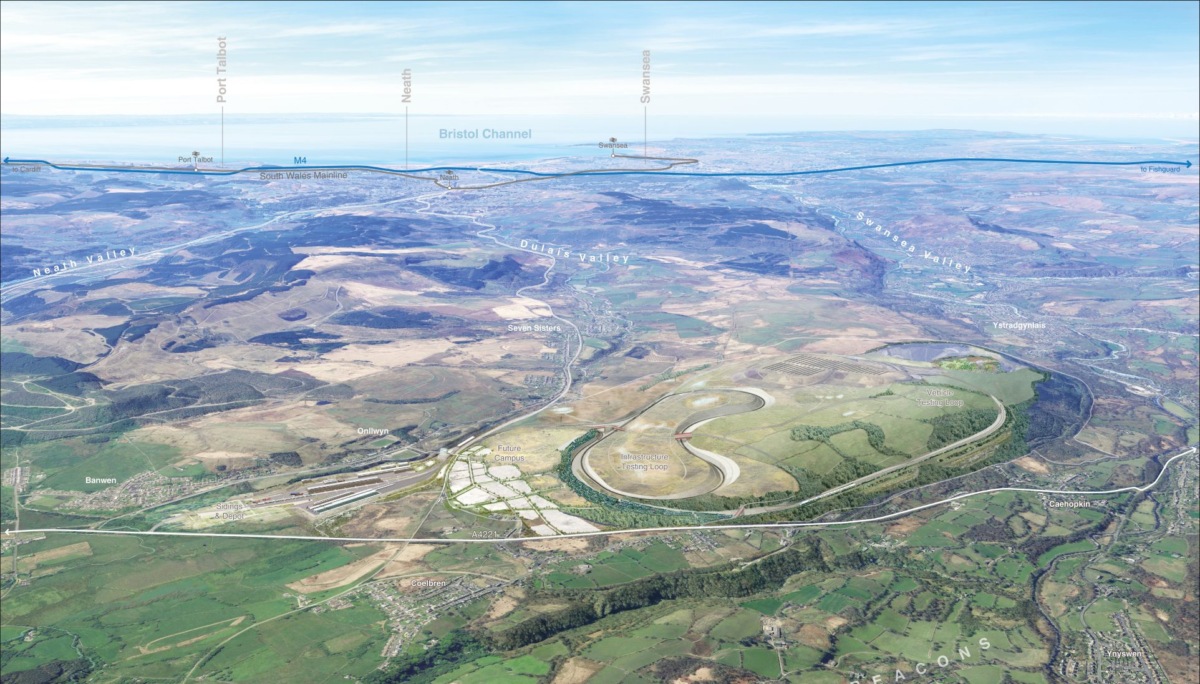The £7.4m ‘Innovation in Railway Construction’ competition moved into its second phase this week as teams were briefed on the next stage of the programme.
In October last year UK organisations were invited to apply to Innovate UK for a share of up to £575,000 for feasibility studies as part of the ‘Innovation in Railway Construction’ competition funded by the Department for Business and Trade in the UK Government.
24 projects involving 36 organisations were successful in the initial round, allowing feasibility studies to be funded on their ideas. This week, successful teams held a briefing with Global Centre of Rail Excellence (GCRE) and Innovate UK about the next steps of the competition.
Projects successful in the second round will receive funding to further develop their ideas to concept stage at the new GCRE facility being constructed in South Wales.
GCRE Limited Chief Executive, Simon Jones, said:
“The Innovation in Railway Construction competition represents one of the most exciting and interesting research and development projects in UK rail. It is a glimpse into the future and a look at the new ideas and concepts that will be the backbone of tomorrow’s railway.
“For us at GCRE this is especially exciting because these will the first project teams innovating at our site. Even before we are operational for commercial clients, we will have teams working on site and developing their new products and ideas.
“It was great to see how the different teams have interpreted the challenge and hear how they are progressing with their innovations. There are some very creative and fascinating ideas being developed through the first phase and it’s exciting to think that we can take some of the very best through to development at our new GCRE facility.

Head of Innovation at GCRE Limited, Kelvin Davies, said:
“What’s very exciting about the proposals teams are taking forward is the way they are aimed at tackling some of the biggest challenges in rail. Many of the projects successful in the first round are pitched at helping to decarbonise our railways or developing more cost effective and sustainable rail infrastructure. That’s hugely exciting and also very beneficial for the future of the railways both here in the UK and across Europe.
“This is a unique opportunity for the teams involved as we offer up the prospect of developing the best ideas on the page to construction at the Global Centre of Rail Excellence facility. That ethos of being a facility that supports innovation at every level – including small innovation teams – is one that is very important to the GCRE team and it’s great to seeing it being realised here.”
Paul Gadd, Deputy Director, Materials, Manufacturing and Land Transport at Innovate UK said:
“The launch of this important phase 2 competition shows the continuing collaboration between Innovate UK, the Department for Business and Trade, GCRE and the railway construction supply chain to deliver innovation.
“The program will support demonstrations at the GCRE site of cutting-edge approaches to lowering carbon emissions, reducing costs and to accelerating timescales. This will help major infrastructure programs undertaken by HS2 and Network Rail to be delivered more sustainably, cost-effectively and quickly.
“Innovate UK is committed to working with central, local and devolved government across the UK to support a greener transport policy, which the railway industry has a critical part to play.”
The Innovation in Railway Construction competition is a phased competition, with a number of successful projects progressing in 2024 to fully develop their ideas and delivering a demonstration on the GCRE site.
The successful first round projects vary in scope from development of new rail drone technology to self-healing concrete.
When it opens, GCRE will be a facility providing world class research, testing and certification of rolling stock, infrastructure and innovative new technologies that will fill a strategic gap not just in UK rail, but across Europe.
GCRE was established in 2021 with an initial commitment of £50 million from the Welsh Government. The UK Government is supporting the project with funding for research and development along with capital funding of £20 million. GCRE is currently progressing a major public procurement to attract private funding for the project.
